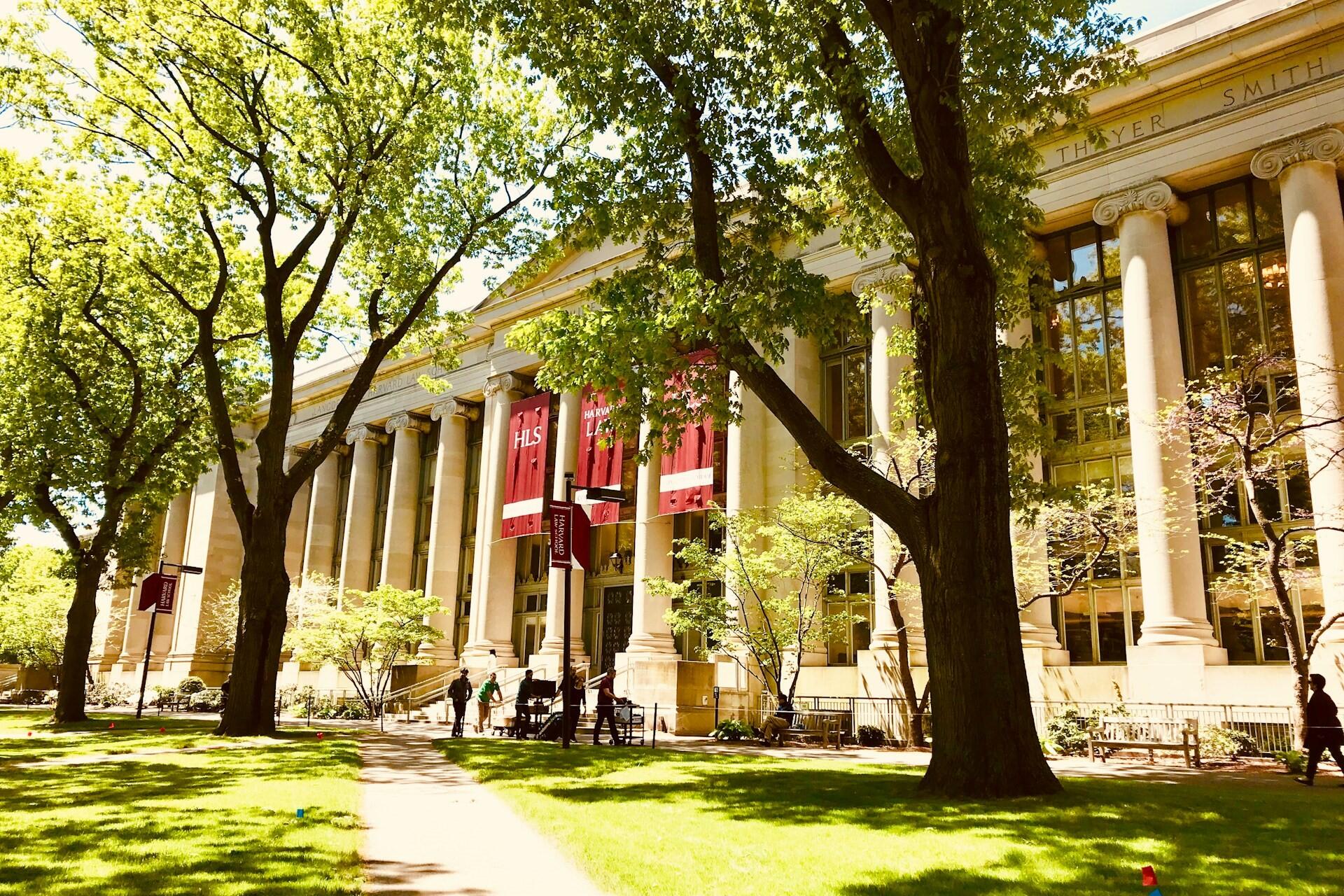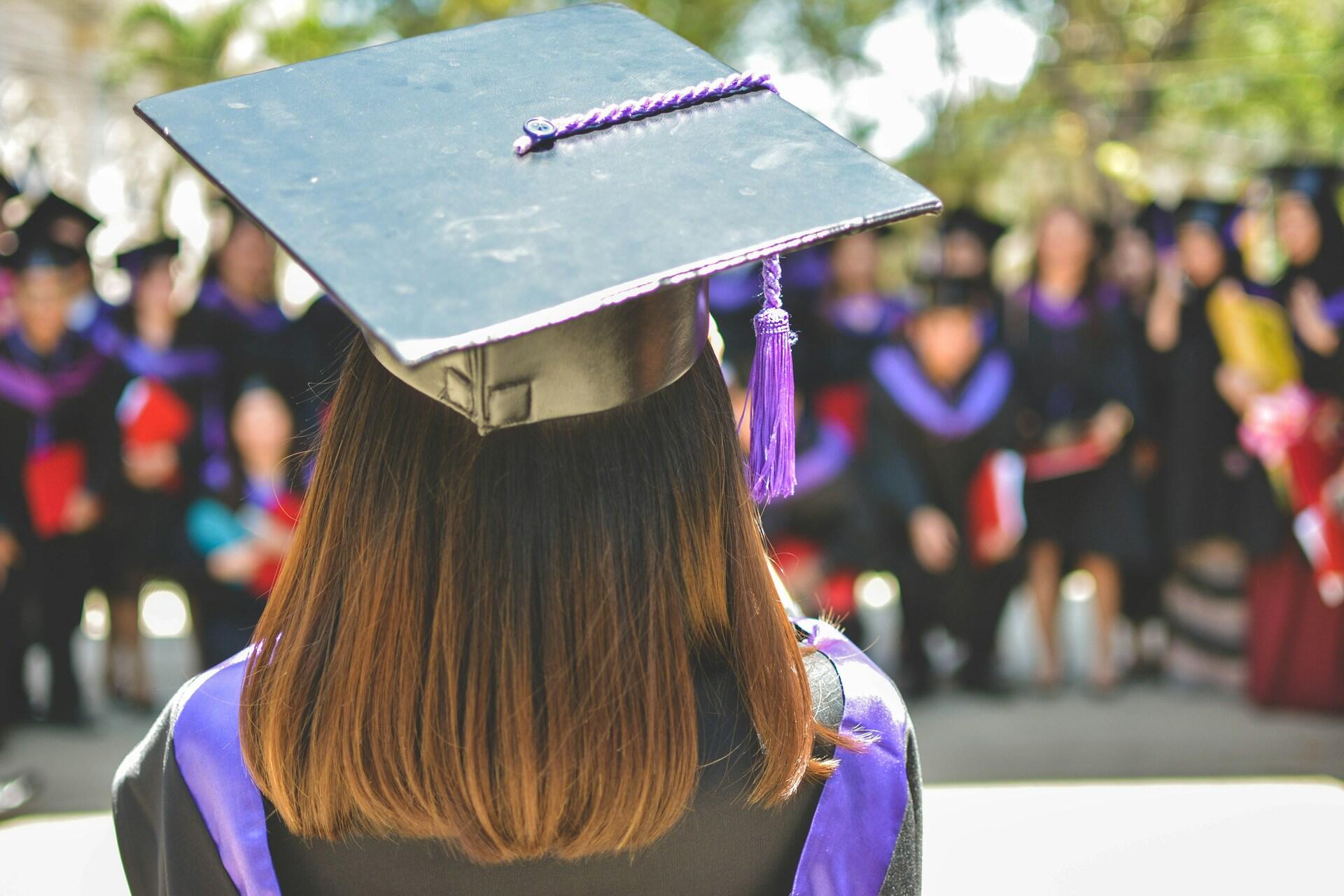Any New Zealand student looking to study in the United States will need to convert their NCEA results into a GPA, the grading system that most US universities (or colleges) use to assess applicants. While NCEA and GPA scores are on different scales, you can estimate your GPA using a simple formula and the average value of your NCEA credits. Here, we'll look at how it all works.

Why Study Abroad in the US?
Studying abroad is a dream for many students. It can be a great way to obtain a prestigious qualification, find the university that best suits your projects and discover the world in the meantime. It can also help students become more independent and enterprising, as they will live on their own for several years.
However, as it happens, different countries around the world have their own educational systems, each with its own grade systems and qualifications. As a result, it is not always possible for everyone to apply for entry to a foreign university with their school diploma. But luckily, that is rarely the case for New Zealanders.
NCEA certificates that school students in New Zealand get after completing their secondary education are largely recognised by plenty of countries in the world and offer their owners great studying opportunities.
New Zealand students apply to study in US universities every year.
Find out more about other countries where you can study with NCEA.
For instance, your NCEA diploma can be used to apply for entry to a university in the USA. Many international students choose this pathway, as the USA has some of the world's best educational institutions. Additionally, the country's language of education is English, which makes US educational programs accessible to many people.

So, let's find out how your NCEA qualification can help you enter a university in the USA and what requirements you will have to meet.
Understanding the NCEA Qualification System in New Zealand
To understand the requirements that applicants from New Zealand will need to meet in the USA, it is helpful first to examine how NCEA works in New Zealand itself.
To begin with, NCEA stands for National Certificate of Educational Achievement and is the primary qualification that high-school students receive upon completing their secondary education.
Learn about what NCEA is equivalent to in other countries.
Students generally start working towards NCEA Level 1 in Year 11 and achieve NCEA Level 3 by the end of Year 13. So, obtaining an NCEA diploma generally takes 3 years, during which students are required to choose several courses and get qualifications in them.
As the year unfolds, students will need to achieve standards that correspond to different pieces of knowledge or skills. The compulsory standards at the first level of NCEA are numeracy and literacy, which prove students' English language skills and math abilities.
A crucial point is that when a student completes a standard, they are assigned a grade on a scale of 4. These grades can be easily memorised as NAME, standing for Non-Achieved, Achieved, Merit and Excellence. Achieved corresponds to the minimum level required to complete a standard, and Excellence is the highest score.
Excellence (E) = highest level, worth 3 points for GPA
Merit (M) = strong performance, worth 2 points
Achieved (A) = meets the standard, worth 1 point
Not Achieved (N) = does not meet the standard, worth 0 points
When students get their end-of-school qualifications, those grades will be determinant as to which university they can apply for entry to and how high their chances of getting accepted are.
The problem from an international perspective is that NCEA is a particular school qualification that operates somewhat differently from many qualifications around the world. This means that applicants with an NCEA result will need to determine its equivalent so that they can meet the requirements of their country of destination.
Let's see how NCEA is converted to an ATAR for studying in Australia.

How the US High School System and GPA Work
Before we can establish what NCEA is equivalent to in the USA, it can be useful to review how end-of-school qualifications are given out in that country in general.
Unlike New Zealand, where the NCEA system applies to most high schools, the organisation of education in the USA varies significantly from one institution to another. Still, US students are often given a certain level of freedom in their educational choices and can decide which subjects they will focus on more.
However, what is common for almost all schools in the country is that they award grades to students based on their performance. These can appear in the form of letters from A to F or as numbers where the minimum score is either F or 0.
The existence of different grading systems from one school to another makes it necessary to find a common scale for university applicants from all around the USA, once they start to apply for entry to university.
That is usually measured in the form of a GPA, or Grade Point Average. GPA is a score that is calculated as the average of all the grades a student has received throughout high school. The GPA score normally ranges from 0 to 4.

When a student gets their end-of-school qualification, they can start looking for a university by comparing their own score with the one required. As there are many applicants, gaining admission to a top university is only possible with a very high score, close to 4.
This same system also applies to international students who can send their school qualifications to universities, and their scores will be converted according to the right scale.
universities across the USA, UK, Australia, and Europe accept NCEA qualifications for direct undergraduate admission.
NCEA is also considered equivalent to A-levels in the UK and can serve as a pathway to enter top universities.
How to Convert Your NCEA Credits to a US GPA
Now, the most important question for students from New Zealand is whether their NCEA grade can be converted to a US GPA. The answer to this question is yes. As New Zealand has an internationally recognised educational system, your NCEA credits will also be recognised in the USA and can be converted into a GPA.
| NCEA Average Score | Description | Approximate GPA (U.S. Scale) |
|---|---|---|
| 3.0 | All Excellence | 4.00 |
| 2.5 | Mix of Excellence & Merit | 3.33 |
| 2.0 | All Merit | 2.67 |
| 1.5 | Mix of Merit & Achieved | 2.00 |
| 1.0 | All Achieved | 1.33 |
The easiest way to make the conversion is to list all the credits you have got in high school from NCEA level 1 to 3 and count up all the Excellence, Merit and Achieved grades you have got.
Your credits gained at Excellence can be equated to 3, your Merit credits to 2 and so on. Once you have calculated the average of all the credits gained at each level, you will have a score on a 3-point scale. All you need now is to convert the number to a 4-point scale by multiplying it by 4 and dividing by 3.
- Tally all your Excellence (3), Merit (2), and Achieved (1) credits
- Calculate the average score across all your credits
- Apply the formula: GPA = (Average × 4) ÷ 3
What you will get in the end is roughly the GPA equivalent of your NCEA grade. However, as the educational systems in New Zealand and the USA are pretty different, this conversion can only be approximate and should be taken as a point of reference rather than an absolute score.
The university you apply for entry to may consider both your converted GPA score and your original NCEA results to get a better idea of what their level of knowledge is.
As you can see, choosing the right subjects and gaining NCEA credits with good grades can be quite important for high school students. Not only can it help you enter a better university in New Zealand, but it can also open up excellent opportunities abroad.
- Input your credit totals by grade
- Instantly convert to a 4.0 GPA scale
- Compare with U.S. university entry requirements
Now, let's say a few words about how to improve your level in NCEA subjects and achieve the best result in each course.

Top US Universities for NCEA Students
Having converted your NCEA results to a GPA, you'll immediately have a better idea of which US universities you could apply for.
Not every university places such a significant emphasis on your GPA, with some adopting a more holistic admissions approach that considers your statement, extracurricular activities, and course choices.
However, with most competitive institutions looking for a GPA of 3.7 or above, you'll know which ones are unlikely, and you can apply to universities more strategically.
It's recommended that you check each university's admission guidelines since some may ask for SAT or ACT scores while others will accept a converted NCEA record.
The most popular choices depend on the subject area, but all top-ranking universities, such as Harvard, MIT, and Yale, are sought after by students with a strong GPA.
Harvard, for example, is a popular choice for law, business, and medicine, while MIT is for the very best in maths, science, and technology.

UC Berkeley, located in California, is renowned for its social sciences and technology programs and boasts a strong international student support network and highly rated faculty.
The top universities in California (UCLA, Stanford, USC), as well as New York-based universities like NYU and Columbia, also make for popular choices both for their academic prowess and the appeal of their locations.
However, students from New Zealand can easily enjoy the American student life at almost any American university, not just the very top-ranked ones. For those looking to study specific or niche subjects, they may need to look beyond the universities that regularly top the rankings.
| University | Location | Known For |
|---|---|---|
| Harvard University | Cambridge, MA | Ivy League, Law, Medicine, Economics |
| Stanford University | Stanford, CA | Tech, Business, Engineering, Innovation |
| Massachusetts Institute of Technology (MIT) | Cambridge, MA | Engineering, Computer Science, Mathematics |
| University of California, Berkeley | Berkeley, CA | Sciences, Social Policy, Sustainability |
| Columbia University | New York, NY | Journalism, Business, Humanities |
| University of California, Los Angeles (UCLA) | Los Angeles, CA | Film, Life Sciences, Psychology |
| New York University (NYU) | New York, NY | Arts, Business, International Studies |
| University of Michigan | Ann Arbor, MI | Medicine, Law, Engineering |
| Yale University | New Haven, CT | Humanities, Law, Political Science |
| University of Southern California (USC) | Los Angeles, CA | Media, Tech, Business |
Improve Your NCEA Results with Personalised Tutoring
NCEA standards were designed in such a way as to test students' various abilities and make sure they master well each chosen subject.
When students select their subjects, they usually opt for those in which they excel, so that they can validate them more easily afterwards. Nevertheless, any subject may include an especially challenging standard for us. This should be a reason to panic. However difficult a standard can be, students can also get the help of private tutors to improve their level.
Enter a university in Europe with NCEA to discover new countries and live extraordinary experiences with people from all around the world.
The main advantage of tutoring courses is that you will get personalised support and focus exactly on the issues that seem difficult to you. As many tutors in New Zealand have experience working with NCEA students, they can organise their course in the most optimal way to help you deepen your understanding of the subject quickly.
Whether at NCEA level 1, 2, or 3, private tutors can help students become more confident with their skills and subsequently perform better. However, the question that may arise is where to find a qualified tutor offering NCEA support courses? A helpful tool that can help is Superprof.
On Superprof, there are thousands of NCEA-level tutors offering courses all across New Zealand. We will provide you with information about them, and you can read reviews from other students about their course.
When you come across a profile that looks good, you can contact the tutor via chat directly on the platform and schedule your first lesson with them (often for free). Finding the right tutoring course with Superprof has become extremely easy, so you can focus on studying to get the best possible grades.
Summarise with AI:














